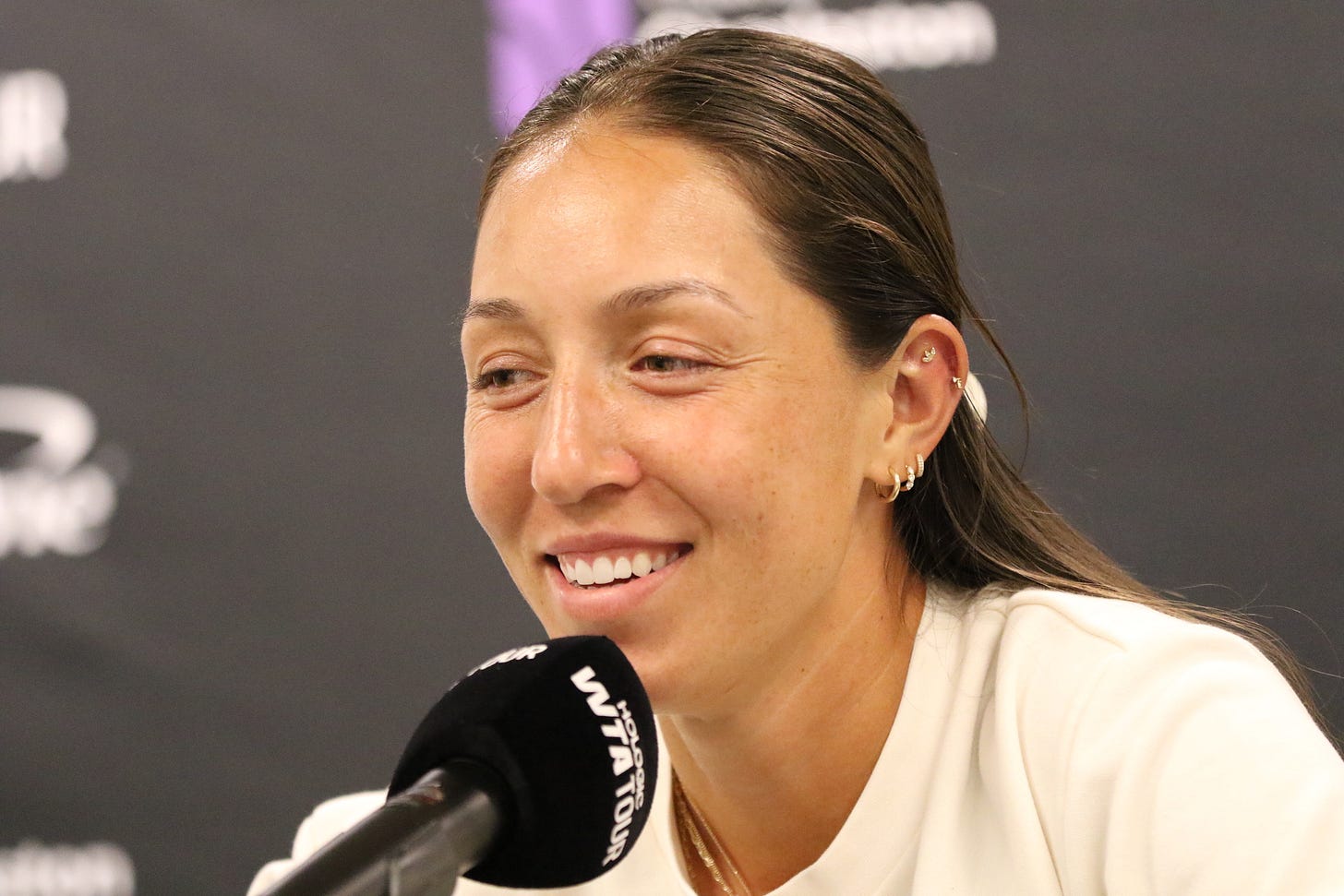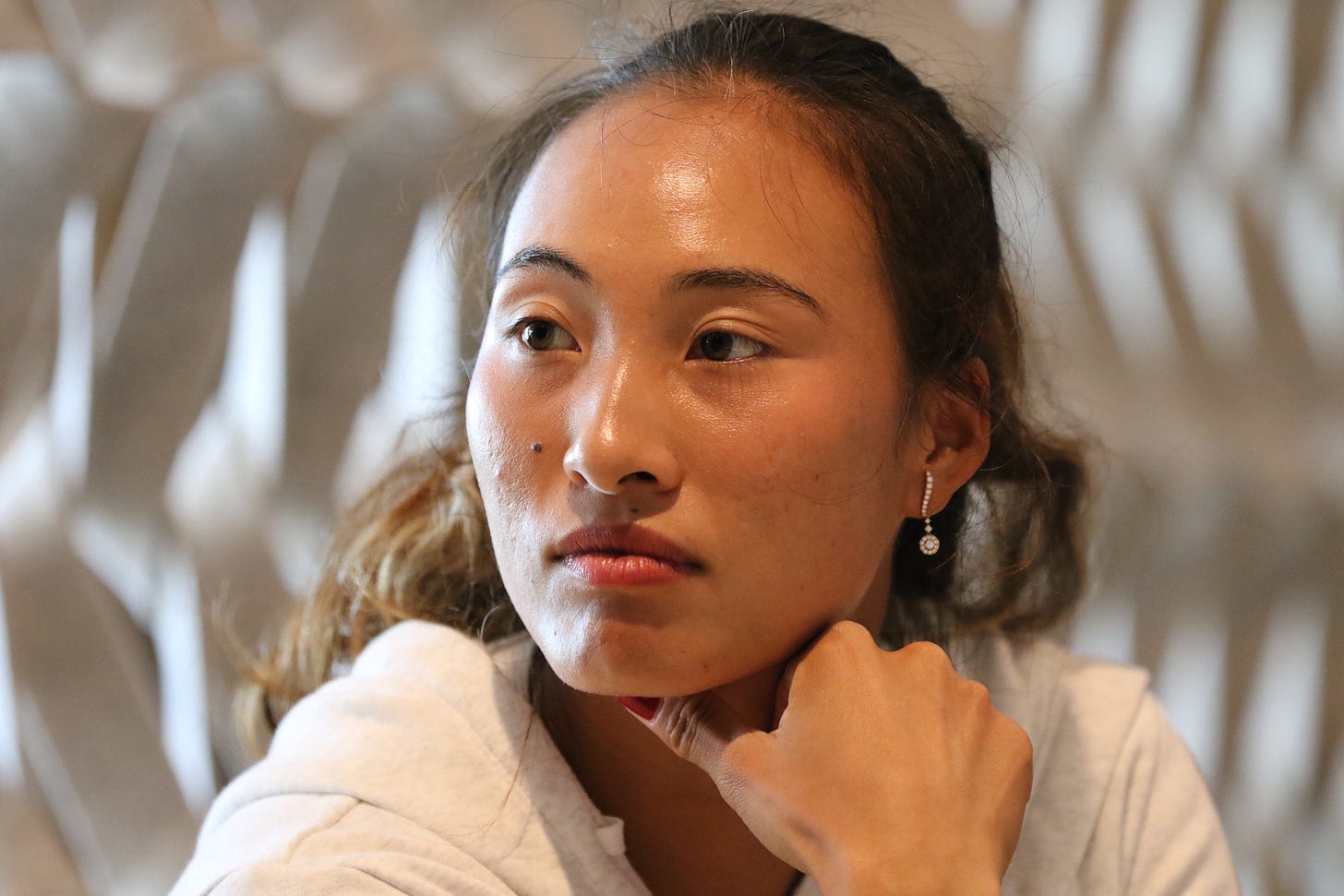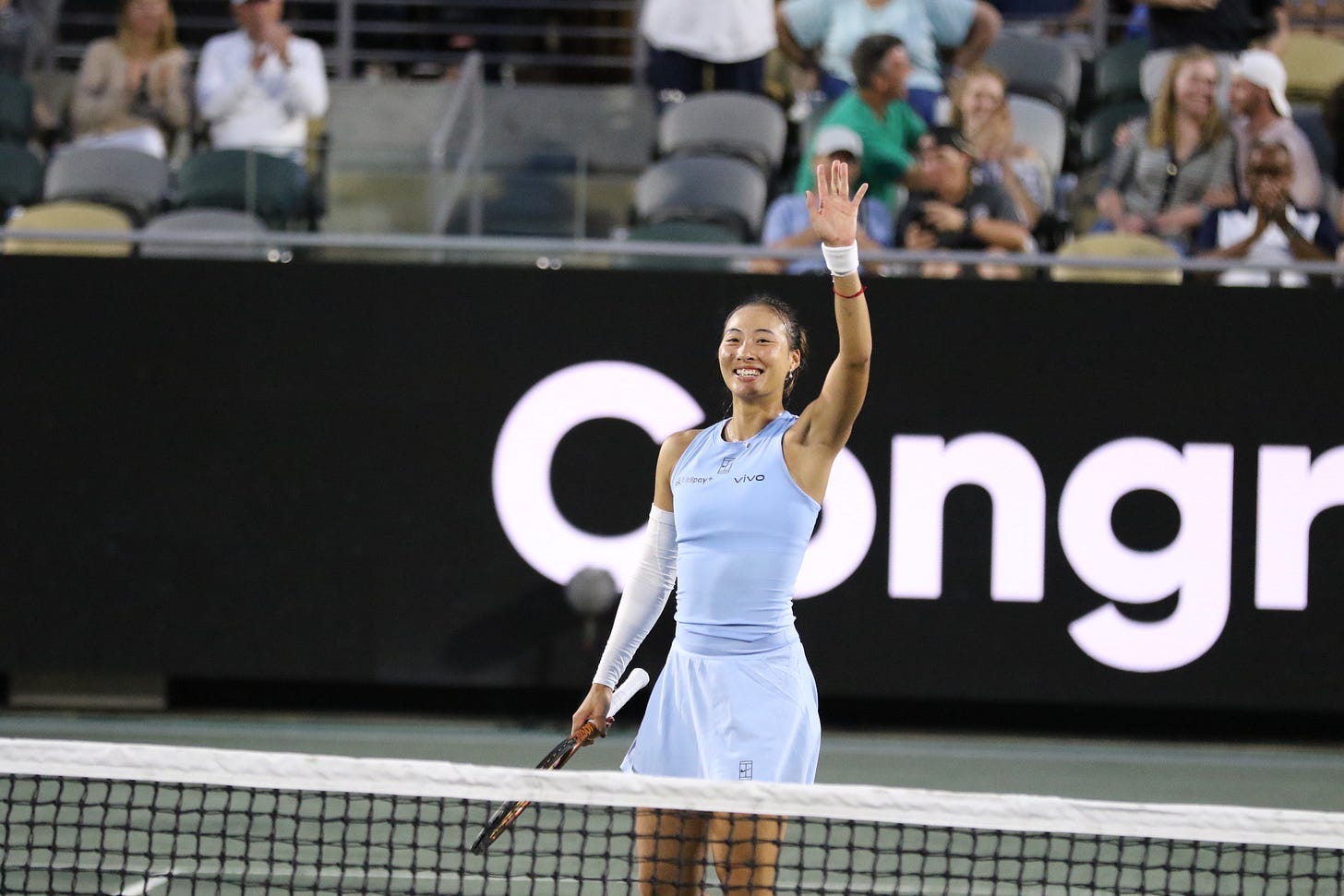The Top 20 Take Aim at the Majors
A new effort has united top players in tennis, joining together to call for a bigger cut from the biggest tournaments.
DANIEL ISLAND, S.C. — Today’s biggest tennis news came out of France, where the sports newspaper L’Equipe reported that representatives of the ATP and WTA Top 20 co-signed a letter demanding a pay hike from the four major tennis tournaments.
As reported by L’Equipe (translated from French):
According to our information, a letter demanding a substantial increase in prize money was co-signed and then sent by the top 20 men's and women's players to the organizers of the Australian Open, Roland Garros, Wimbledon, and the U.S. Open.
In essence, this letter calls for a greater distribution of profits made by the four pillars of the circuit to benefit the main stakeholders: the players, without whom the show would not take place.
Three Top 20 Players in Charleston Weigh in on the Letter
I asked three WTA Top 20 players who were in action here at the Charleston Open on Wednesday about the letter. All three were aware of the letter, but engaged in the topic in various ways.
Let’s go through them in order of least-to-most revealing:
No. 4 Jessica Pegula

Jessica Pegula, a longtime member of the WTA Player Council who is reliably engaged in tour affairs, largely demurred on the topic and chose to stay cagey for the moment.
“Yeah, I think that's something I don't want to talk about too much,” Pegula said. “It's just something that we're working with our WTA PBR [Player Board Representatives] with, and hopefully we'll have more information about that soon. But I don't want to go into that too much just because—I don't know—I shouldn't.”
No. 11 Emma Navarro
11th-ranked Emma Navarro, the 23-year-old daughter of Charleston Open owner Ben Navarro who surged up the rankings last season, is not as proficient as Pegula on such topics, but said a bit more.
“I guess I haven't given that a ton of my energy,” Navarro said. “I talked a little bit to the other players about it and felt like it was a good idea to sign. And, yeah, I think there have been, I guess, some sort of unfair pay ratios—I don't know the correct terminology—in the past. And I think it's a good cause to sort of come together as players and make sure we're getting treated fairly.”
No. 8 Zheng Qinwen

The most revealing answers came from last year’s Olympic gold medalist, eighth-ranked Zheng Qinwen of China. The 22-year-old is already one of the world’s highest-earning athletes: Zheng ranked fourth in Sportico’s estimates of the highest-paid female athletes for 2024, with an estimated $20.6 million total earnings from $5.6 million in prize money and $15 million in endorsements.
Zheng began by saying that she thought a pay increase from the majors would be most important to players further down the earnings tables than herself.
“I think that that's going to be more benefit for all the players, not only the top players, especially for those players that work hard during all the years and need to get paid from the Slams,” Zheng said. “They have to survive. They also need to pay for a good team to be able to have a good chance to win the match. So I think that's really positive.”
Zheng, as many tennis players do when arguing for a greater share of revenues, then used the oft-cited example of the NBA (which was also mentioned in the L’Equipe report), which gives about 50 percent of revenues to players.
“Because if you look, the basketball sport, they all get paid 50/50,” Zheng continued. “Because the players, we are working really hard. Because I am a tennis player, I know how much I worked to arrive here. So I believe that's really positive for us, yeah.”
Zheng said she first heard about the letter from another longtime member of the WTA Player council: the veteran and two-time major champion Victoria Azarenka.
“Actually, first of all, Azarenka, she talked to me first about this idea,” Zheng said. “At the beginning I just thought it's tough to make it happen. But somehow, you know, they really did it.”
Zheng then repeated her hopes that an increase would help players further down the table.
“And then I spoke with my manager, and it seems like it's a positive benefit for all the tennis players,” she said. “And I believe—I really believe—when you are 100th in the world, you need to have a good team to be able to arrive in a higher place. So I think it's more benefit for those players as well.”
My final question to Zheng on the topic: “Do you think the Grand Slams are going to listen to the players?”
“This, I don't know,” Zheng replied. “You know, we try to do what we can do. And then let's see what the gods brings to us and the Slams. But at least we are trying, yeah.”
Comparisons to the Recent PTPA Lawsuit
Because it comes less than two weeks after the lawsuit filed by a group of players coordinated by the PTPA, there will be natural comparisons between the two efforts as examples of players-vs-tournaments.
For more on the PTPA suit, you can read the Bounces interview with PTPA executive director Ahmad Nassar.
But the two approaches differ in several immediate ways. The letter was addressed and sent to the four majors, who were conspicuously not named as defendants in the PTPA lawsuit, which instead named the ATP, WTA, ITF, and ITIA.
The letter also has, per L’Equipe’s reporting, a much narrower focus compared to the sprawling laundry list of complaints in the PTPA’s 163-page filing, simply asking for an increase in pay commensurate with revenues.
Because it is not a legal filing, the letter does not carry the same threat of litigation as the PTPA’s filing, and could potentially be ignored entirely by the majors.
What Players in Charleston Had Said About the PTPA
But what the letter has that the PTPA most seems to lack is the apparent support of top players, at least after an initial survey with an admittedly small sample size of three. But going 3-for-3 is already a major difference from the 0-for-6 result I got regarding the PTPA on Monday.
The PTPA claimed in its initial press release that their “legal actions [are] backed overwhelmingly by the top 250+ men’s and women’s players including a majority of the Top 20 players,” but I’ve yet to see a single Top 20 player express full support for the effort.
All three Top-20 players I asked about the letter on Wednesday knew about it and were able to discuss it, to varying degrees. By contrast, I had asked six leading WTA players about the PTPA lawsuit on Monday, and none of them said they had contact with the PTPA about the suit, nor did they seem interested in it.
Most answers about the PTPA were fairly terse; Madison Keys simply said “No” twice when the topic of the PTPA was mentioned.
“No, I haven’t,” Amanda Anisimova said when asked if she’d had contact with the PTPA.
“I didn’t have any contact with PTPA,” said Belinda Bencic.
“No, I've been kind of outside of that,” said Ajla Tomljanovic, “so I don't know much.”
The last two players I had asked earlier in the week about the PTPA effort were two of the same players whom I would go on to ask about the Top 20 letter days later: Jessica Pegula and Zheng Qinwen.
“No, I don't really know,” Pegula said of the PTPA on Monday. “No. I haven't really heard anything much since that article or whatever that was.”
Pegula, who was referring to news articles about the lawsuit, said that she didn’t have the bandwidth for the PTPA.
“I mean, like a few years ago, I remember they were pitching certain things to different players,” Pegula said of the PTPA. “And I wasn't ever against anything that they did, it just wasn't something that I was a part of. Being on the player council was enough to keep me preoccupied; I don't need to add any other things to my agenda, I guess you could say. So I'm not really sure where that's going or what they're intending to do.”
Zheng, who would be up for expounding about the Top 20 letter two days later, didn’t have much to say about the PTPA either in her pre-tournament media rounds on Monday.
“No,” Zheng said. “Me, I don't have the contact with PTPA. I'm still at the age where I want to focus as much as I can only on the tennis competition side.”

Thanks for reading Bounces! If you have a copy of this Top 20 letter that you’d like to share with me, please do: benrothenberg1+bounces@gmail.com, or message me here (or add me to any top-secret Signal group chat).
More subscriber-only stuff will be coming to Bounces from Charleston in coming days, so please do subscribe! -Ben








The plot thickens.
I’m most curious about Pegula’s response. Seems as if discussions are happening. If the Slams don’t respond, players will need to threaten a boycott. It’s the only way they will ever force change.